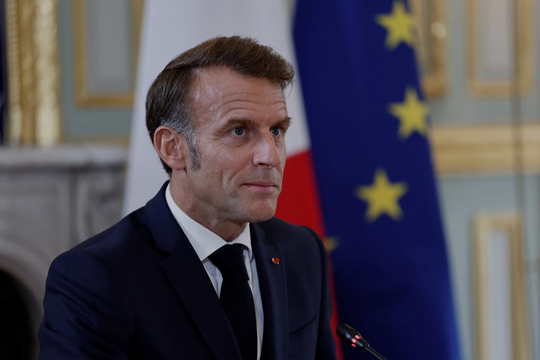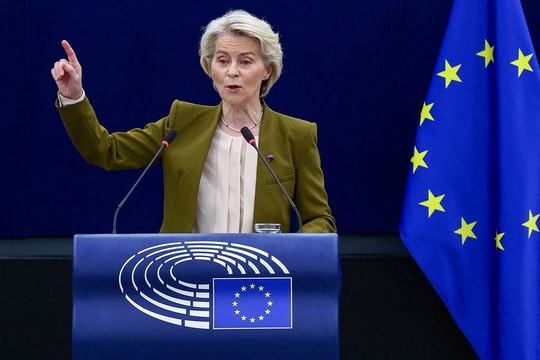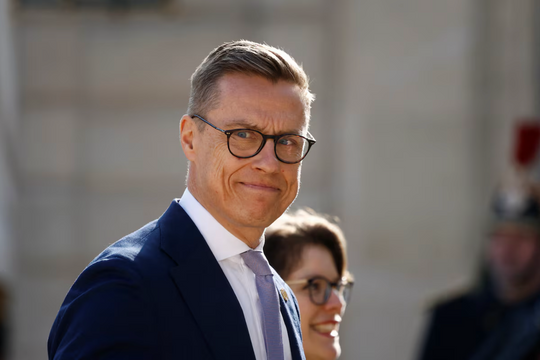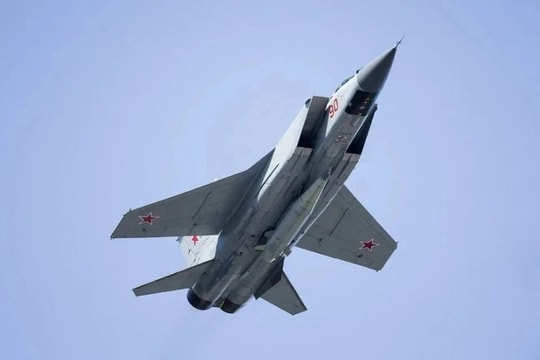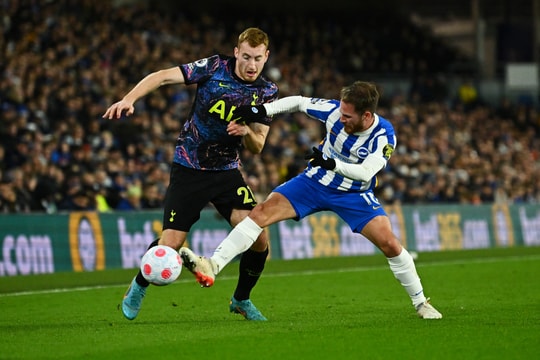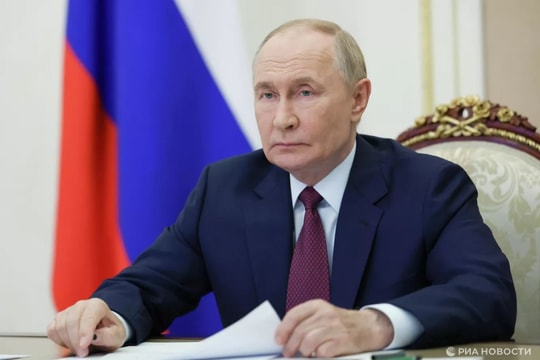Russia strengthens cooperation with Africa despite sanctions
Ethiopia is an important ally and partner of Moscow. It is the largest economy in East Africa and a promising market. Russian Foreign Minister Sergei Lavrov met with Ethiopian Foreign Minister Demeke Mekonnen.
On July 27, Russian Foreign Minister Sergei Lavrov visited Ethiopia, the last stop of his extensive African tour. He had previously visited Egypt, Congo and Uganda. Through this trip, Russia and African countries affirmed their determination to strengthen cooperation, on the basis of traditional friendship, equality, mutual respect and mutual benefit.
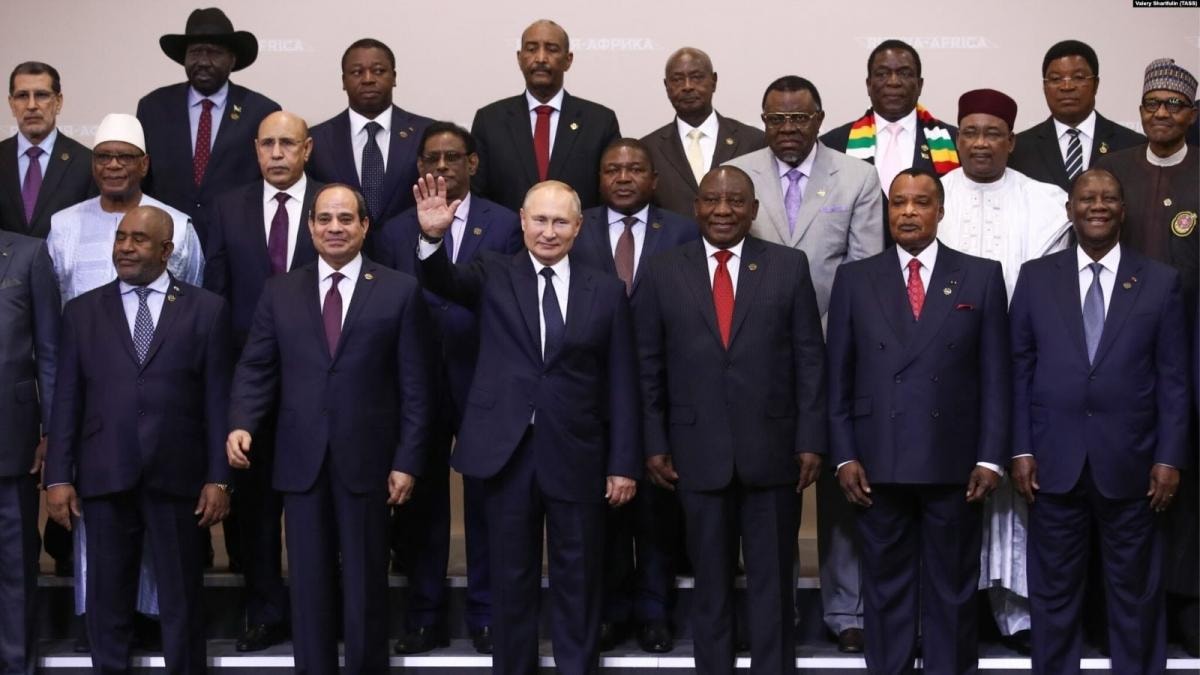
Russian President Putin with African leaders at the Russia-Africa Summit in Sochi in October 2019. Photo: TASS
Ethiopia is an important ally and partner of Moscow. It is the largest economy in East Africa and a promising market. Russian Foreign Minister Sergei Lavrov met with Ethiopian Foreign Minister Demeke Mekonnen.
The two leaders discussed security issues, military-technical cooperation, as well as food cooperation. Foreign Minister Lavrov once again assured that Russia will not change its obligations to provide food to African countries, despite European sanctions. He believes that such a policy only undermines the foundations of global food and energy security.
In such a situation,Moscow particularly appreciates the position of Latin American and African countries., where efforts to exert global pressure on Russia are not being understood. Minister Lavrov stressed that, “the vast majority of countries do not want to return to colonial times, they want to be independent, go their own way and rely on old friends. After all, except for two or three developing countries, no one else in Asia, Africa and Latin America is participating in the illegal sanctions of the United States and Europe.”
For his part, Ethiopian Foreign Minister Demeke Mekonnen said that “Russia has been supporting the African country for hundreds of years” and is developing cooperation in space, medicine and nuclear technology. According to him, “the visit of my Russian colleague is very timely.” They had very productive talks, discussed national, regional and global issues, raised the current food crisis and related issues to be solved together.
Earlier, in a meeting with the Russian Foreign Minister, Ugandan President Yoweri Museveni reiterated that Russia has supported the anti-colonial movement for more than 100 years and stressed that Kampala will not succumb to external pressure and take an anti-Russian stance. The Ugandan leader made it clear that he is neither pro-Western nor pro-Eastern, he is for himself.
Professor at the Higher School of Economics and Africa expert Irina Filatova said that African countries are completely neutral or supportive of Russia in the current confrontation with the West. According to her, African countries' attitudes towards Russia are different from those of Europe and the United States, largely due to the remembrance of Soviet support for the region. However, these countries are trying to maintain a balance between Russian and Western support, because trade with both is beneficial for them and they are not willing to lose it.
“Africans have more and more opportunities to pursue their own independent policies. And Africans now have opportunities – material, financial, personnel and other – to cooperate on a mutually beneficial basis,” said Yevgeny Korendyasov, head of the Center for the Study of Russia-Africa Relations and Foreign Policy at the Institute of African Studies of the Russian Academy of Sciences and former Russian Ambassador to Mali.
According to experts, Russia, due to its economic limitations, is unlikely to compete with China or the United States in providing large financial assistance to African countries or implementing large-scale infrastructure projects on the continent. However, Moscow has a range of time-tested advanced commercial and technological solutions that can promote success in sub-Saharan Africa, not only in North Africa (including Egypt, Algeria and Morocco are the largest trading partners in Africa, more than 70% of Russia's exports go to countries in the region).
This is especially true in areas where Russia has significant advantages over its competitors in the creation and development of energy infrastructure, digital transformation, introduction of high technologies into production, joint development of peaceful nuclear technology, satellite launches, etc. Some progress has been made in bilateral cooperation. Projects of Rosatom and its subsidiaries are being implemented to varying degrees in South Africa, Namibia, Sudan, Nigeria, Tanzania and Ethiopia. It is also expected that Rosatom's presence in Zimbabwe will soon reach a new level. Rosatom has also just signed a contract to create the first nuclear power plant in Egypt - Ed Dabaa.
According to experts, Russia has the opportunity to import rare earth metals of the platinum group from African countries, which are necessary for high-tech industries. 90% of platinum entering the world market, more than half of diamonds, about 50% of chromium and titanium are mined in Africa. African countries are certainly interested in continuing and creating new joint projects for the extraction of natural resources. In addition, corresponding to the export of grain, a great opportunity opens up for Russia to import fruits, coffee, nuts from Africa.
It can be believed that Russia-Africa relations have turned a new page. Ahead are preparations for the second Russia-Africa summit in 2023./.


